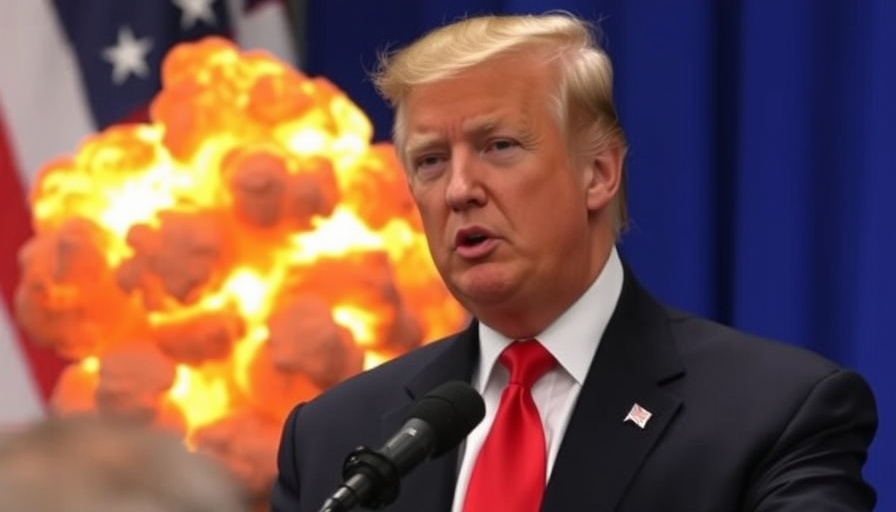
The Escalation of Tensions: U.S. Strikes Iranian Nuclear Sites
In a significant military escalation, the United States has carried out airstrikes on multiple Iranian nuclear facilities, marking the first direct military engagement between the two nations. This development, confirmed by President Donald Trump in a social media announcement, further compounds the already tense relationship between Iran and its long-standing adversary, Israel. The airstrikes come amid ongoing military tensions in the region, as both countries have engaged in a series of skirmishes that have stoked fears of a broader conflict.
Understanding the Target: Key Nuclear Facilities
The targeted sites, Fordow, Natanz, and Esfahan, hold strategic importance in Iran's nuclear program. Fordow, in particular, is an advanced facility deep within a mountain, housing crucial uranium enrichment processes. The airstrikes employed the U.S. GBU-57 Massive Ordnance Penetrator, a robust bomb designed specifically to penetrate heavily fortified bunkers, making it one of the few weapons capable of successfully striking Fordow.
Israeli officials note that their own military capabilities allowed them to engage Iran's nuclear infrastructure but highlighted that the involvement of U.S. forces was critical for the successful target of Fordow. Typically, Israel's air force lacks the aircraft necessary to deliver such specialized ordnance, thus necessitating collaboration with U.S. forces for effective action.
The Ripple Effect: Domestic Reactions and Implications
This decisive military action has sparked mixed reactions among Republicans and the American public. While Trump's announcement was met with approval from some corners, others expressed concern about the potential for escalating violence in the Middle East. Several of Trump's closest allies acknowledged the complexity of the situation, suggesting that a military approach might not guarantee stability or safety for U.S. interests abroad.
People in Bakersfield and beyond are left contemplating the broader implications of these strikes. What does this mean for future U.S. foreign policy? The question underscores growing unease about the lengthening shadow of military intervention in global affairs. As the repercussions of these airstrikes unfold, they bring not only a tactical but also a moral reflection on the costs of warfare.
A Call for Peace: Trump’s Messages
In his post, Trump proclaimed, "NOW IS THE TIME FOR PEACE!" This statement introduces a contrasting tone amidst the aggressive military action. For many, this declaration raises eyebrows: can peace be achieved through military strikes? The tone of his message indicates a desire to project strength while simultaneously advocating for diplomatic avenues, a tension that is emblematic of U.S. policy in conflict zones.
With Trump emphasizing the capabilities of U.S. military strength, local residents might reflect on the community values that steer discussions around warfare — a commitment to peace, unity, and understanding. With local dialogues around military action entering the national stage, it opens the door for community members to express their views on the importance of finding solutions that favor diplomacy over conflict.
What Lies Ahead? Future Considerations
As we look to the future, the potential for heightened conflict looms large. Observers worry that these actions could provoke retaliatory strikes by Iran, exacerbating an already volatile situation. Such potential retaliation can create further instability in an area already fraught with geopolitical tensions.
For individuals in Bakersfield, it's an opportunity to engage in discussions about how local values can influence national policies. Emphasizing community-driven dialogue can resonate with national issues, reminding local residents that their voices matter in the broader discourse on peace and conflict resolution.
Building Community Through Awareness
The unfolding situation highlights the importance of staying informed. Engaging in community discussions about military actions can help foster a deeper understanding of global dynamics and their impact at home. Community dialogue fosters a shared sense of responsibility, urging individuals to advocate for peace and support initiatives that promote diplomacy.
The call for peace amidst the storm of military action invites all parts of the community to reflect on their roles in advocating for dialogue and collaboration, rather than conflict. The path forward requires understanding, compassion, and active engagement at all levels of society. Consider joining local organizations focused on peace advocacy or attending community forums to explore your role in shaping a more harmonious future.
Now is the time for us all to consider how we can contribute to the conversation surrounding peace, both locally and globally.
 Add Row
Add Row  Add
Add 



Write A Comment